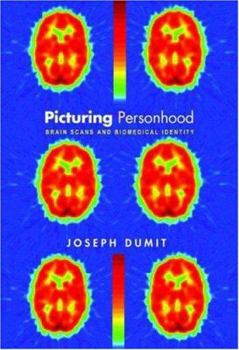Picturing Personhood: Brain Scans and Biomedical Identity
Select Format
Select Condition 
Book Overview
By showing us the human brain at work, PET (positron emission tomography) scans are subtly--and sometimes not so subtly--transforming how we think about our minds. Picturing Personhood follows this remarkable and expensive technology from the laboratory into the world and back. It examines how PET scans are created and how they are being called on to answer myriad questions with far-reaching implications: Is depression an observable brain disease? Are criminals insane? Do men and women think differently? Is rationality a function of the brain? Based on interviews, media analysis, and participant observation at research labs and conferences, Joseph Dumit analyzes how assumptions designed into and read out of the experimental process reinforce specific notions about human nature. Such assumptions can enter the process at any turn, from selecting subjects and mathematical models to deciding which images to publish and how to color them. Once they leave the laboratory, PET scans shape social debates, influence courtroom outcomes, and have positive and negative consequences for people suffering mental illness. Dumit follows this complex story, demonstrating how brain scans, as scientific objects, contribute to our increasing social dependence on scientific authority. The first book to examine the cultural ramifications of brain-imaging technology, Picturing Personhood is an unprecedented study that will influence both cultural studies and the growing field of science and technology studies.
Format:Paperback
Language:English
ISBN:069111398X
ISBN13:9780691113982
Release Date:January 2004
Publisher:Princeton University Press
Length:272 Pages
Weight:0.95 lbs.
Dimensions:0.7" x 6.2" x 9.1"
Customer Reviews
0 rating





